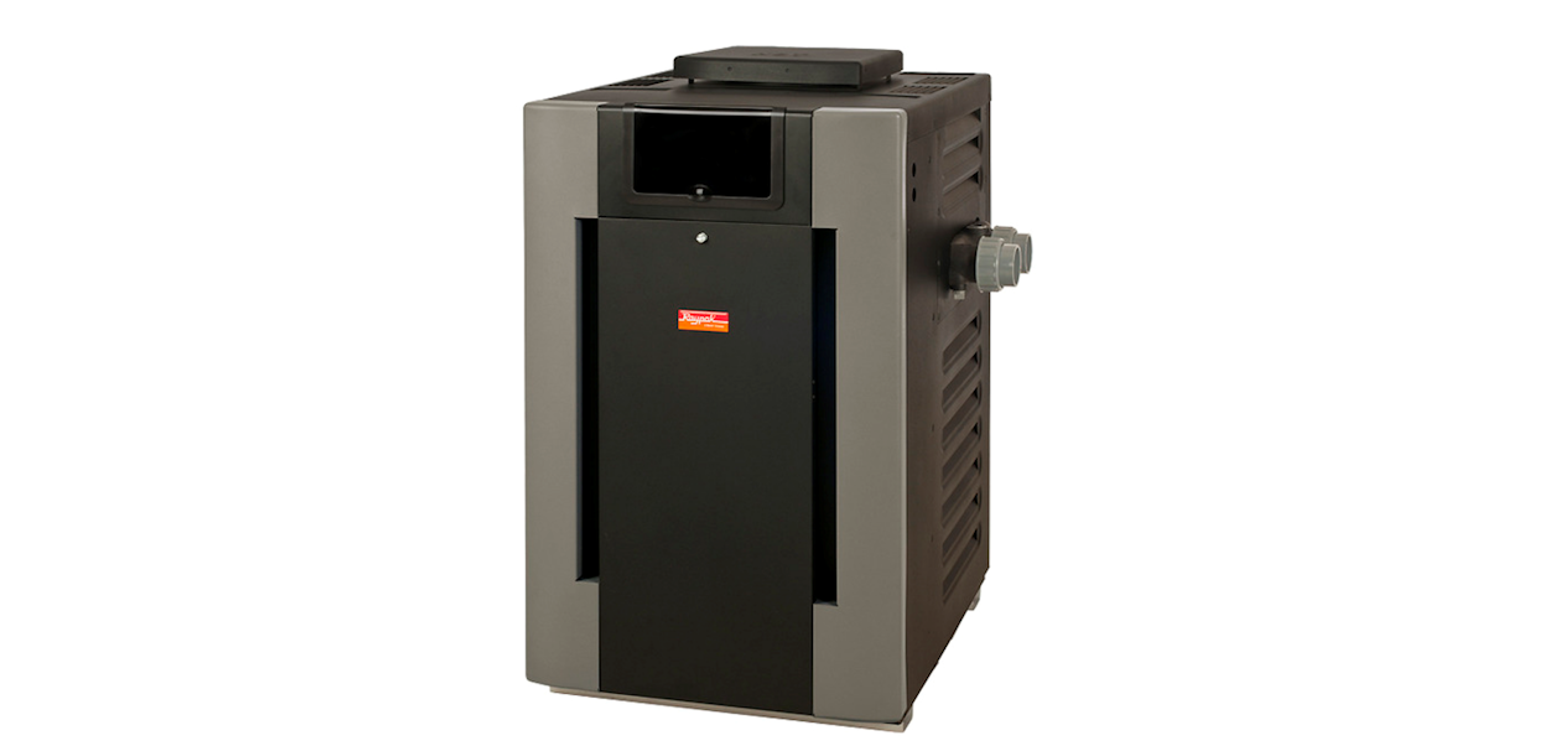Gas Heater Systems for Pool or Spa
When the temperature is 90 or above it is great to jump into a pool to cool off. Jumping into an unheated pool when it is chilly out is not something most of us find enjoyable. With a pool heater, you can still enjoy using your pool even when the outside temperatures are low. Read on for a brief description of gas heater systems.
Gas
heating systems have long been a popular choice, despite their
inefficiency as compared to electric and solar systems. Newer gas
 models
are much more efficient than their predecessors, but even so they are
still at a disadvantage. However, the relative efficiency of each system
depends greatly on your local climate, and its suitability depends on
your pool use habits, so there are going to be cases where gas is the
best option.
models
are much more efficient than their predecessors, but even so they are
still at a disadvantage. However, the relative efficiency of each system
depends greatly on your local climate, and its suitability depends on
your pool use habits, so there are going to be cases where gas is the
best option.
Gas systems are perhaps the most simple. They burn natural gas or propane, and heat the pool's water by drawing water through a filter into the heating unit. The water is heated via proximity to the unit's combustion chamber.
The beauty of a gas-fired heating system is that water can be heated quickly much more so than electrical or solar powered systems and it can be heated regardless of external weather conditions. A gas-fired system can maintain any temperature you desire no matter what the weather. This quality, coupled with the lower efficiency and higher operating cost of the gas system, makes them really ideal for heating a pool which doesn't see regular use.
To check the efficiency of a gas-fired system, use the heater efficiency ratio. This is expressed as a percentage, and refers to the amount of fuel the unit consumes versus the amount that is wasted when heating water. For example, unit operating at 55% heater efficiency uses 55% of the gas it consumes in heating pool water, wasting 45% in the process. On the other hand, a 95% efficient system wastes only 5% of the gas it consumes.
More efficient systems are naturally more expensive, but over the life of the unit, it'll pay for itself if you use the pool regularly. Choosing a 95% system over a 55% system will save a little over $400 a year. Given that a properly installed and maintained system will last at least five years, you can potentially save more than $2,000 in annual heating costs.
Choosing a pool heater can be hard because you want the best value for your dollar and a reliable heater that is going to last for many years before you will need to repair or replace it. Please give us a call pr email if you have any questions on pool heaters or need advice on which pool heater is the right choice for your pool.

